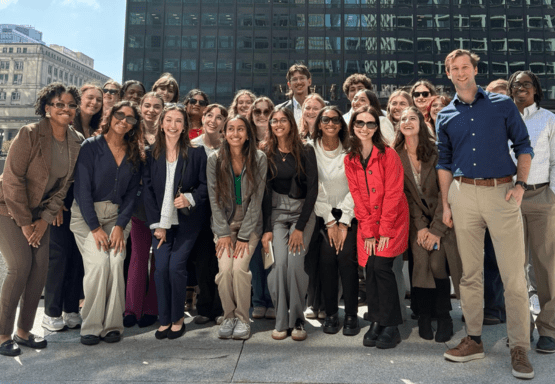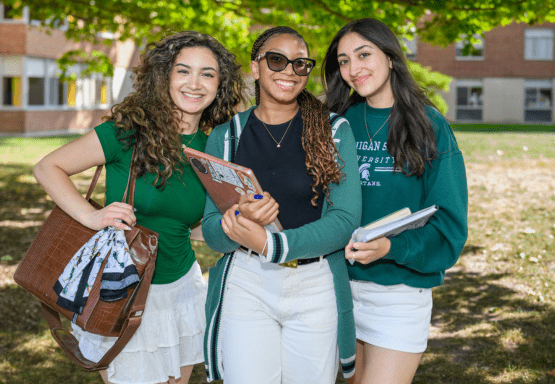Student Spotlight: Saylor Reinders
Saylor Reinders (she/her) is a third-year student double majoring in social relations and policy, and comparative cultures and politics, and minoring in Spanish. Reinders is from San Carlos, CA, and is involved as the co-leader of Students Demand Action at MSU, a member of Delta Phi Epsilon Professional Foreign Service Sorority, and a member of the Spartan Housing Cooperative.
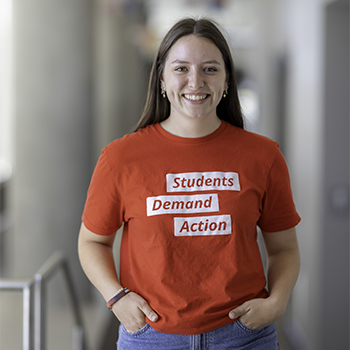
Warning: The following content discusses the impact of gun violence.
How did you get involved with Students Demand Action?
I got involved with Students Demand Action the summer before my freshman year at MSU. AJ Collatz, my now co-leader, was starting a chapter and was looking for executive board members. She reached out to me to see if I wanted to join, and I immediately said 'yes.'
I already knew I wanted to get involved with organizing in college, and gun violence prevention was an issue that felt personal to me as a member of the “mass-shooting generation.” Growing up, I felt fear at school of a shooting occurring, especially after each new school shooting made headlines. This fear drove me into action, and since becoming an advocate, I have deepened my understanding of the various forms of gun violence and their effects on communities.
How has your time in Madison influenced your work with Students Demand Action?
Madison has opened my mind to new ways that gun violence connects to other issues in the United States. While my classes haven’t explicitly studied gun violence, I can apply the knowledge I learn in class about institutional inequities to discover connections to the gun violence crisis. Then, when I go and speak to legislators, I can be a more informed advocate and make sure that our solutions are multifaceted in an effort to reduce all types of gun violence.
My time at Madison has also influenced my work with Students Demand Action by connecting me with other passionate organizers. Many Madison students are involved in different groups on campus, like the Sunrise Movement, and it has been meaningful to connect with them not only for inter-movement solidarity but also to share the experience of being an organizer.
What legislative work have you done in the State of Michigan during your time at Michigan State University?
Since freshman year, I have worked to register people to vote through Students Demand Action, but last year, I took my legislative work further.
After February 13th, I rallied at the Capitol with my fellow students, wrote and spoke to legislators, helped lead a walkout at MSU, and engaged with the press. All of this work led to April 13th, when I watched Governor Whitmer sign background checks on all gun sales and secure storage into law. Additionally, later that day, I watched the Michigan House pass extreme risk protection orders. While I was extremely grateful to see these changes made, it was also frustrating that they were not made sooner.
When I got back to campus in the fall, I was ready to start working on passing another set of bills that would prohibit anyone convicted of a domestic violence misdemeanor from possessing a firearm for eight years. To help pass these bills, I attended a vigil at the Capitol held by End Gun Violence Michigan, attended a Senate committee hearing where my friend testified, and phone banked weekly for two months. In November, the bills passed the legislature, and at the end of the month, I was thrilled to see them signed into law.
While 2023 was an eventful year for gun safety in Michigan, and we were successful in passing four gun safety bills, these were foundational bills that should have been passed long ago. Guns are the leading cause of death for young people in the United States, and I hope to see our government officials treat this crisis with the urgency and seriousness it demands and not wait for the next mass shooting to take action.
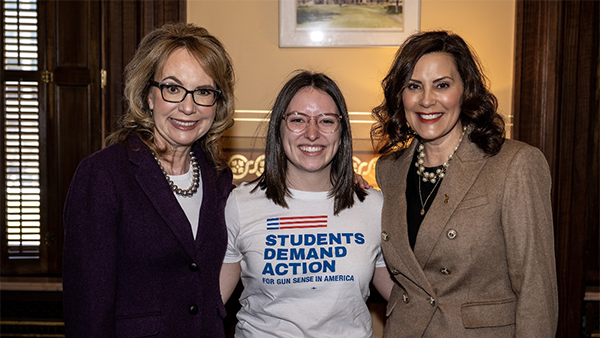
What advice would you give to students who are interested in legislative work?
We are living in a time where it feels like the world is falling apart, with many injustices locally and globally. My biggest piece of advice, which was given to me by Deputy Mayor Quinton Law (of Moorestown, New Jersey), is, “Don’t let the inability to do everything stop you from doing something.” Whether it is talking to a family member, joining a rally at the Capitol, or phone banking, there are so many ways to get involved.
What is the most important takeaway from your experiences with legislative work?
One key takeaway is that sometimes there is more to a situation than meets the eye. Here is what I have learned regarding gun safety:
Gun safety laws are vital for saving lives, but culture change is also essential. One thing we need to understand is that the gun violence crisis is more than mass shootings. 120 people die every day from gun violence, and hundreds more are injured, whether from suicide, domestic violence, unintentional shootings, or homicides. This statistic shows that gun violence occurs on a daily basis, but we don’t hear about it. I am a firm believer that conversations about gun violence need to include how complex and multi-faceted this issue is.
Additionally, culture change includes debunking popular myths about guns. For example, there is no research that supports the notion that owning a gun improves safety. However, there is research that shows that access to a firearm increases the risk of death by suicide by three times, and that access to a firearm makes it five times more likely that an abusive partner will kill his female victim (EveryStat).
Finally, culture change can mean changing the way we speak. There are many popular sayings, such as “I will shoot you an email” or “They haven’t pulled the trigger yet,” that are rooted in gun violence. While an individual may not be saying these words with violent intent, changing the way we speak can aid in culture change.
Overall, I learned and believe that culture change needs to be a part of legislative conversations to help find multi-faceted approaches to ending gun violence.
What are your plans post-graduation?
I imagine continuing my advocacy for gun violence prevention, whether working for Everytown for Gun Safety, another gun violence prevention organization, or working in a legislative role where I can be a champion for change.
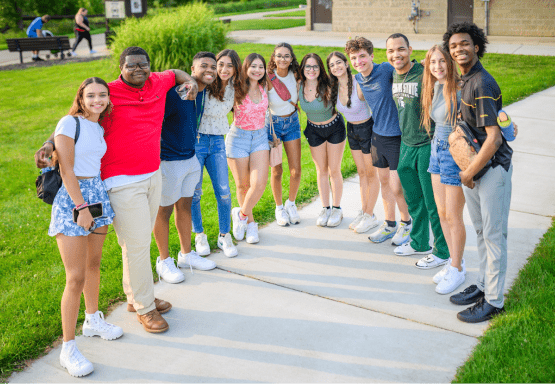
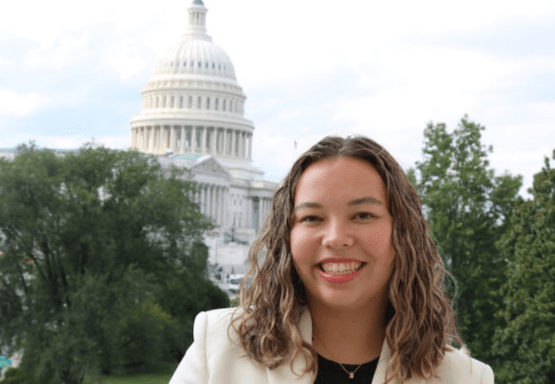
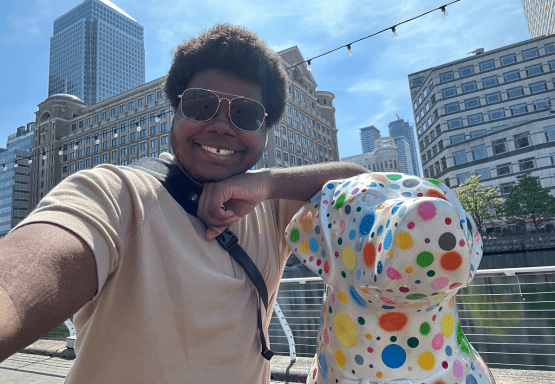
.png?h=384&iar=0&w=555)
